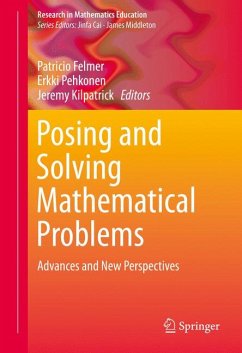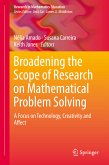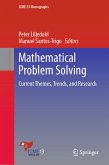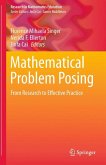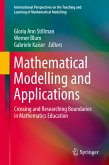This book collects recent research on posing and solving mathematical problems. Rather than treating these two crucial aspects of school mathematics as separate areas of study, the authors approach them as a unit where both areas are measured on equal grounds in relation to each other. The contributors are from a vast variety of countries and with a wide range of experience; it includes the work from many of the leading researchers in the area and an important number of young researchers.
The book is divided in three parts, one directed to new research perspectives and the other two directed to teachers and students, respectively.
Dieser Download kann aus rechtlichen Gründen nur mit Rechnungsadresse in A, B, BG, CY, CZ, D, DK, EW, E, FIN, F, GR, HR, H, IRL, I, LT, L, LR, M, NL, PL, P, R, S, SLO, SK ausgeliefert werden.

